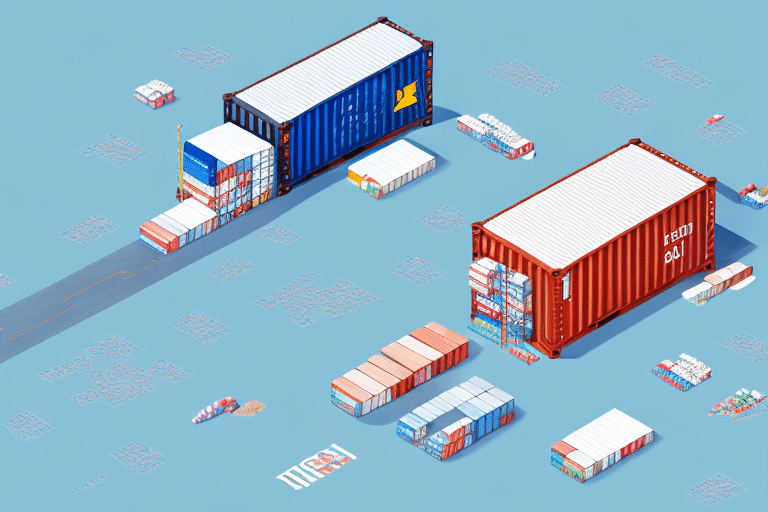Understanding Landed Costs in Ecommerce
In the highly competitive world of ecommerce, comprehending landed costs is essential for maintaining profitability when planning international shipments. Landed costs encompass the total expenses involved in transporting a product from the seller to the buyer's doorstep. These costs include the price of goods, shipping fees, customs tariffs, insurance, and other associated expenses. Accurately calculating landed costs can significantly enhance a business's bottom line by ensuring that all expenditures are accounted for, thereby protecting profit margins.
What Are Landed Costs and Why Do They Matter?
Landed costs represent the aggregate of all expenses a business incurs to deliver a product from its origin to the customer's location. Key components of landed costs include:
- Cost of Goods Sold (COGS): The initial price paid for the products.
- Shipping Fees: Charges for transporting goods from the seller to the buyer.
- Customs Duties and Taxes: Fees imposed by governments on imported goods.
- Insurance: Protection against potential loss or damage during transit.
- Handling Charges: Costs related to packaging and managing shipments.
Understanding landed costs is crucial because they directly influence a business's profit margins. Miscalculating these costs can lead to underpricing or overpricing products, both of which can negatively impact competitiveness and profitability.
Impact on Profit Margins
According to a report by Trade.gov, inaccurate landed cost calculations can erode profit margins by up to 15%. Ecommerce businesses must ensure precise calculations to maintain healthy financial performance.
Calculating Landed Costs Accurately
Accurate calculation of landed costs involves several steps to ensure all potential expenses are considered:
Identifying All Expense Components
Businesses must account for:
- The product's value and weight
- Shipping and transportation fees
- Customs duties and taxes
- Insurance and handling charges
- Currency exchange rates
- Potential unexpected costs like customs delays
Utilizing Specialized Software
Tools such as Flexport and ShipBob can automate landed cost calculations, reducing errors and providing real-time data to help businesses make informed decisions.
Monitoring Currency Exchange Rates
Fluctuations in currency exchange rates can significantly impact landed costs. Businesses should regularly monitor these rates and consider hedging strategies to mitigate risks associated with currency volatility.
The Impact of Landed Costs on Ecommerce Profitability
Landed costs play a pivotal role in determining the overall profitability of ecommerce operations. Accurate landed cost calculations enable businesses to:
- Set appropriate product pricing
- Maintain healthy profit margins
- Make informed decisions about inventory and supply chain management
Competitive Pricing Strategies
By understanding landed costs, businesses can strategically price their products to remain competitive while ensuring profitability. Overpricing can deter customers, while underpricing can erode margins.
Strategies to Minimize Landed Costs
Reducing landed costs is essential for boosting profit margins. Here are effective strategies:
- Optimize the Supply Chain: Streamline processes to minimize transportation and handling costs.
- Negotiate Shipping Rates: Work with carriers to secure better rates through higher shipment volumes or long-term contracts.
- Utilize Freight Forwarding Services: Consolidate shipments to reduce costs.
- Reduce Customs Duties: Ensure accurate classification and valuation of goods to avoid overpaying duties.
- Implement Just-In-Time (JIT) Inventory: Minimize storage and handling costs by receiving inventory as needed.
Example: Sourcing from Cost-Effective Regions
Sourcing products from countries with lower labor and production costs can significantly decrease the cost of goods sold. However, businesses must weigh these savings against potential risks such as supply chain disruptions or quality issues.
Negotiating Better Shipping Rates
Effective negotiation with shipping carriers can lead to substantial savings. Consider the following tips:
- Obtain multiple quotes to ensure competitive pricing.
- Analyze and negotiate contract terms that favor your business needs.
- Consolidate shipments to leverage volume discounts.
- Maintain strong relationships with carriers to facilitate better terms.
Frequent negotiations and reviews of shipping contracts can keep costs aligned with market rates and business growth.
Optimizing Your Supply Chain
A well-optimized supply chain reduces delays and unnecessary costs, contributing to lower landed costs. Key optimization practices include:
- Eliminating supply chain bottlenecks
- Automating processes to increase efficiency
- Collaborating closely with suppliers to enhance lead times
- Implementing advanced tracking and visibility tools
Adopting technologies like Blockchain for Supply Chain Management can provide transparency and streamline operations.
The Role of Customs Duties and Taxes
Customs duties and taxes are significant components of landed costs, varying by country and product category. Understanding these charges is vital for accurate cost calculations:
- Customs Duties: Calculated based on the product's value, type, and origin country.
- Taxes: Such as Value-Added Tax (VAT) or Goods and Services Tax (GST), imposed by the destination country.
Partnering with a reputable customs broker, like U.S. Customs and Border Protection, can help navigate the complexities of international tariffs and ensure compliance.
Avoiding Common Mistakes in Landed Cost Calculations
Businesses often face challenges in accurately calculating landed costs. To avoid costly errors:
- Ensure all expense components are included.
- Use up-to-date and accurate data in calculations.
- Regularly review and adjust for changes in shipping rates and tariffs.
- Maintain thorough documentation to support cost claims.
- Continuously monitor and update calculations to reflect real-time changes.
Implementing rigorous auditing processes can help identify and rectify inaccuracies promptly.
Real-World Case Studies
Examining real-world scenarios can highlight the importance of accurate landed cost management:
Case Study 1: Optimizing Supply Chain
A mid-sized ecommerce retailer was losing approximately 10% of its gross margin due to inaccurate landed cost calculations. By streamlining its supply chain and negotiating better shipping rates with carriers, the company reduced landed costs by 8%, thereby improving its overall profitability.
Case Study 2: Mitigating Customs Duties
An online fashion brand faced an unexpected customs bill exceeding $100,000 due to misclassified goods. By partnering with a customs broker and implementing accurate product classification protocols, the company avoided future discrepancies and maintained stable profit margins.
Future Trends in International Shipping
The landscape of international shipping is evolving, bringing new opportunities and challenges for landed cost management:
Automation and Robotics
The integration of automation and robotics in logistics can enhance efficiency, reduce labor costs, and accelerate shipment processing times. According to McKinsey & Company, automation could reduce logistics costs by up to 25% over the next decade.
Sustainable Shipping Practices
Adopting eco-friendly shipping methods not only benefits the environment but can also lead to cost savings through reduced fuel consumption and improved operational efficiency. Sustainable practices are increasingly becoming a competitive advantage in the ecommerce sector.
Best Practices for Managing Landed Costs
Implementing best practices can help ecommerce businesses effectively manage their landed costs:
- Accuracy: Ensure all cost components are accurately calculated and regularly updated.
- Specialized Tools: Utilize advanced software solutions for precise landed cost calculations.
- Cost Minimization: Continuously seek ways to reduce expenses through negotiation and supply chain optimization.
- Documentation: Maintain detailed records of all shipments to prevent discrepancies and unexpected fees.
- Regular Reviews: Periodically assess and adjust landed cost calculations to reflect current market conditions.
By adhering to these best practices, ecommerce businesses can maintain profitability and thrive in the global marketplace.
Conclusion
Understanding and effectively managing landed costs is paramount for ecommerce businesses aiming to expand internationally. By accurately calculating these costs, optimizing the supply chain, and staying informed about industry trends, businesses can enhance their profitability and maintain a competitive edge in the global market.






















